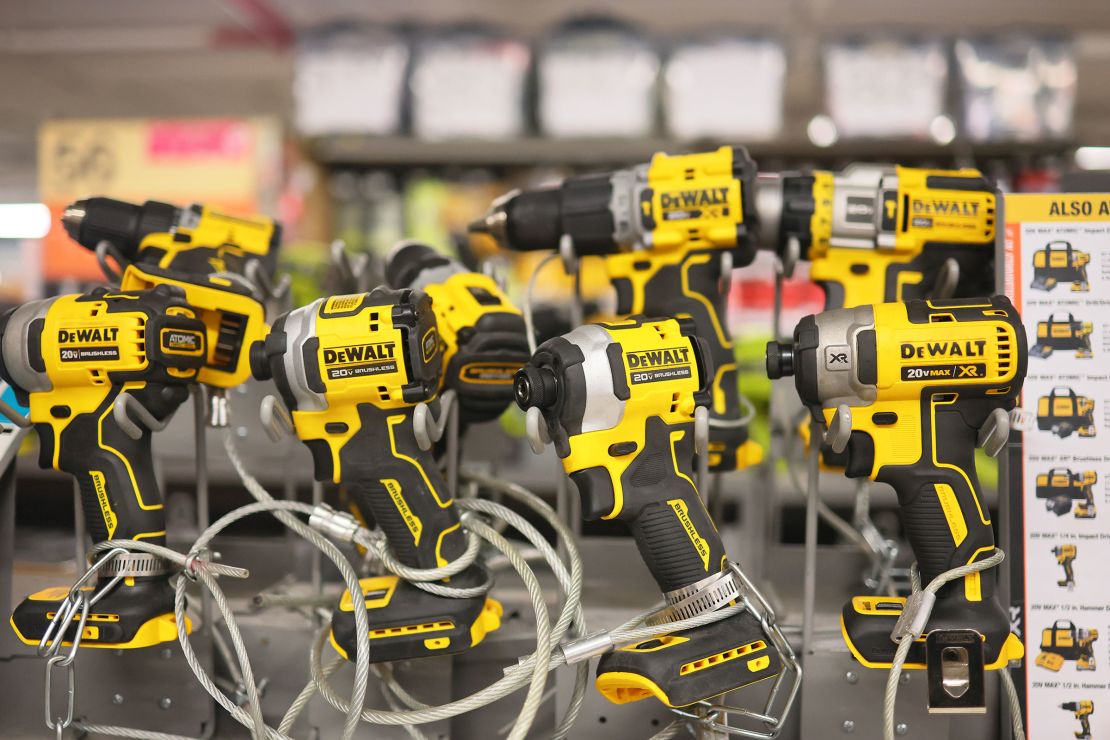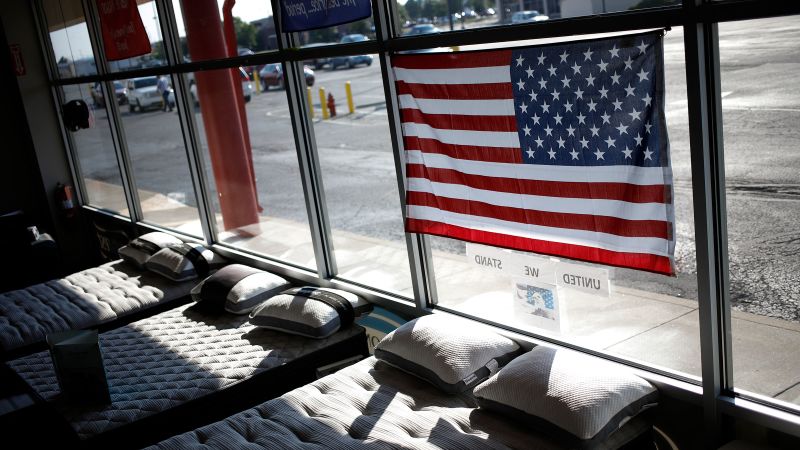New York
CNN
—
President Donald Trump’s unpredictable trade policies and public threats against companies have made it nearly impossible to set prices.
The Trump administration temporarily reduced tariffs on China over the weekend, but import taxes have already made baby gear, power drills, mattresses and other everyday products more expensive for Americans. Companies have been raising prices to survive cost increases from both 10% universal tariffs on every product entering the United States and higher levies on Chinese goods, at 30% even after an agreement between Washington and Beijing.
The Federal Reserve said last week that tariffs have led to a 0.3% increase in prices this year. Some companies are increasing the prices of all of their products. Others are hiking targeted items in their catalogs. Many are just eliminating the products that will cause sticker shock rather than try to sell at prices either customers won’t buy or competitors will undercut, companies and analysts say.
“If you raise prices too much demand goes down and you lose market share,” said Z. John Zhang, a professor of marketing at the University of Pennsylvania who researches pricing strategies. “The fate of your company is in the hands of people making pricing decisions.”

It’s not just market forces making it tricker — companies must also navigate the politics of raising prices. Companies typically communicate why they need to raise prices, but Trump has made doing so a political risk.
The White House took aggressive aim at Amazon last month after the company considered displaying the added cost of tariffs on some items, with Trump putting in an angry call to Amazon founder Jeff Bezos. Trump also threatened Mattel last week after the toymaker said it planned to raise prices because of tariffs.
Business advisors are encouraging companies to talk about a range of forces impacting pricing decisions, rather than blaming price increases specifically on tariffs.
“Companies should talk about how pricing helps to balance supply and demand, achieve profitability and reflect value,” said David Garfield, the co-CEO of consulting firm AlixPartners.
Companies across industries have been hiking prices since tariffs first went into effect last month. Once prices go up, companies rarely lower them.
Telsey Advisory Group, which has started to track online prices of dozens of clothing, sporting goods, home furnishings and other products in response to tariffs, found “small, select increases” in April and expects more price hikes in the coming months, said analyst Dana Telsey.
“These are carefully crafted equations,” she said.
In April, Stanley Black & Decker, the owner of Dewalt, Craftsman, Black + Decker and other power tool brands, raised prices by an average of high single-digits because of tariffs. It plans to introduce a second round of increases later in the year, the company said on an earnings call.
“Our business teams are continuously assessing the evolving trade policies and diligently evaluating their impacts on our global supply chain and our business,” CEO Donald Allan said.
Stanley Black & Decker declined to comment to CNN.
Yeti also raised prices on 14 items in April, including coolers by an average of 7%, water bottles and tumblers by an average of 11% and dog bowls by an average of 22%, according to Baird analysts. Yeti did not respond to CNN’s request for comment.
Avocado Green Mattresses last week increased mattress prices by 6% and other products by an average of 7.5%, the company told the New York Times. Avocado declined to comment to CNN.

Therabody is raising prices this month on its massage guns and other items by as much as 15%, the company told Bloomberg. Therabody did not respond to CNN.
Baby goods company UPPAbaby raised prices on its strollers, car seats and other infant products on May 5 because of tariffs, the company told customers. UPPAbaby’s strollers are manufactured in China.
“While we’ve made every effort behind the scenes to absorb as much of the cost as possible, some price increases are unfortunately unavoidable,” UPPAbaby said on its website last month. “This was a tough decision, made only after exhausting every other option.”
UPPAbaby declined to comment to CNN on its pricing strategy.
Pricing strategies are not one-size-fits-all decisions.
For example, luxury brands offering non-essential goods to higher-income customers have more room to raise prices without losing sales compared to discount retailers selling to consumers on tight budgets.
“You might see a disproportionate pricing impact on items based on demand,” said Alexander Chernev, a professor of marketing at Northwestern University who studies consumer behavior and brands’ strategies.
Pricing strategies will also depend on how critical an item is to customers’ overall perceptions of the brand.
Grocery stores, for example, will often artificially keep the prices for milk and eggs lower— “known value items” in industry parlance — and take a loss to draw in customers while raising prices elsewhere.
“Retailers might price high-demand, frequently-purchased products more competitively” to maintain customer perceptions, Chernev said.
Companies are hiking prices on products they think customers will still buy even if they’re more expensive and eliminating ones that won’t sell with a higher price tag.
“How much can a consumer bear before it’s priced out of the market? I can’t just take an item that is $29.99 and make it $50 and expect people to buy it,” said Steve Rad, the CEO of interactive toy and game company Abacus Brands. “It’s a very granular approach.”
Like most toymakers, Abacus imports its products from China. The company last week planned to raise prices of Pixicade, which turns kids’ drawings on paper into video games, from $29.99 to $39.99 because of 145% tariffs on China.
But Rad said Monday he will hold the price at $29.99 with lower 30% tariffs on China.
“Given today’s news on tariffs, Pixicade will not see a price increase,” Rad said.
The company is eliminating MasterChef, an interactive cooking game that sells for $59.99, because prices would rise to $89.99.
“It won’t sell at $89,” he said.
That’s not the only product — Abacus is cutting around half of its 85 different products this year because the company believes cost increases will price consumers out of buying them.
“Our import strategy is now squarely focused on proven winners,” he said.

